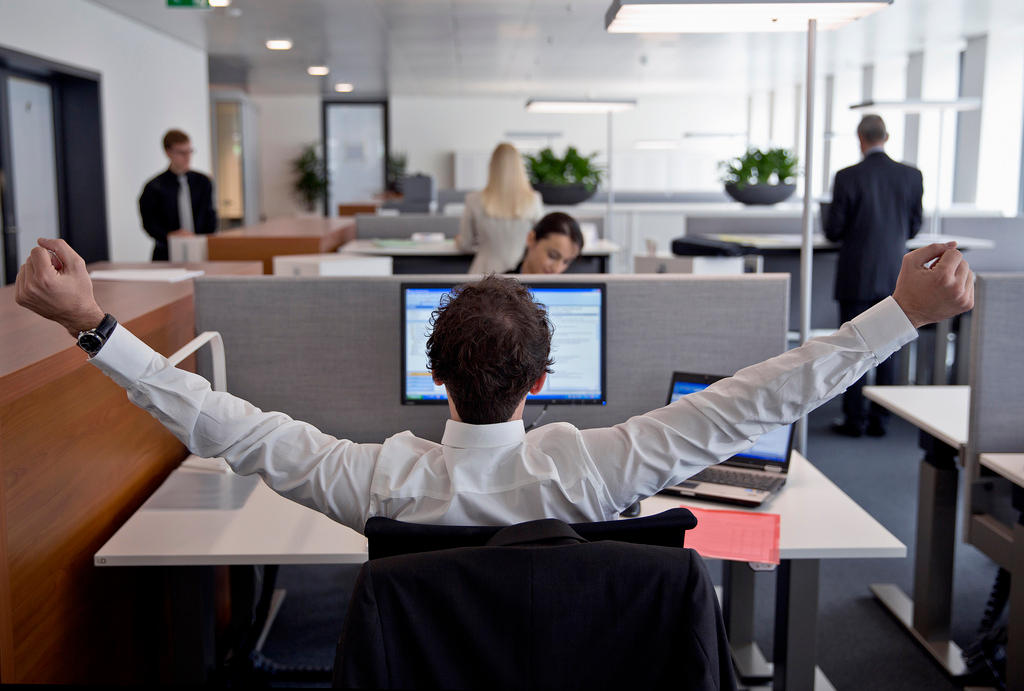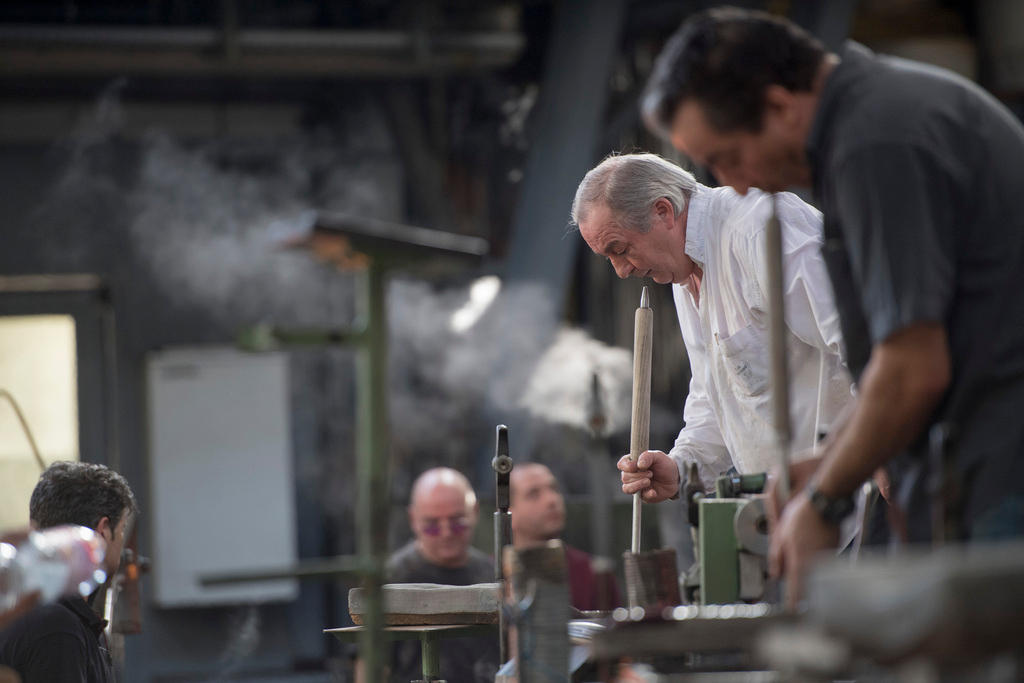Swiss working conditions slip

While the overall health and well-being of Swiss employees is still good, a new survey shows that Switzerland has lost its place ahead of 34 other European countries when it comes to stress and autonomy in the workplace.
In 2005, survey answers from Swiss employees on their working conditions put Switzerland ahead of other European countries on several aspects of workplace health, safety, and autonomy. But ten years later, survey responses showed that Switzerland has fallen from its pedestal to align more closely with the European average.
The data were reported Monday by the EurofoundExternal link, the European Foundation for the Improvement of Living and Working Conditions, which has conducted the largest comparative survey of working conditions in Europe every five years since 1990. The results come from the foundation’s 2015 survey of 43,000 employees, which was conducted with the participation of the State Secretariat for Economic Affairs, SECO, and included some 1,006 Swiss respondents.
More stress, less flexibility
Reports of physical stressors at work was a major part of the survey. About 60% of Swiss employees reported that repetitive motions of the hands or arms were required at least a quarter of the time at their jobs in 2015, compared to just 40% of employees in 2005. Meanwhile, the European average held relatively steady between 61 and 62% in that time period.
Swiss workers also reported lower levels of autonomy and independence at work compared to a decade ago, while the European average for this metric again remained stable. Respondents reported feeling less in control over the pace of their work, the order of tasks and procedures for completing them compared to 2005, bringing them in line with the European average.
While the report shows that the Swiss still have greater freedom to fix their own working hours than most other Europeans, they are also more often subject to last-minute scheduling changes (18% versus 12.5%), putting them at risk for “negative health repercussions” due to difficulty managing free time and potential reduction of total leisure time, according to SECO.
Swiss unions lamented evidence of “one-way flexibility,” where employees are less free to set their own schedules even as their jobs require greater responsiveness and availability from them.
“Workers are more and more the toy of short-term economic interests,” said the Swiss Federation of Trade Unions in response to the figures, the Swiss News Agency reported.
According to the Swiss trade union Unia, these statistics are particularly alarming given that the Swiss already work three hours more per week (42) than their European counterparts (39). More than one-third reported feeling often, if not always, exhausted at the end of the day.
“The health of people unable to recover at night is seriously threatened,” Unia said in a statement to the Swiss News Agency.
In good health
While the Swiss News Agency reported the drop toward the European average of some metrics as a “deterioration,” SECO chose to focus on the positives in its press release, highlighting the fact that Switzerland remains, at 89%, above the European average by some 10 percentage points when it comes to the proportion of workers who define their their physical health as “good” or “very good”.
Moreover, fewer Swiss workers report that they feel their work threatens their health or safety compared to the rest of Europe (15% compared to 24%), and fewer Swiss say their work has negative repercussions for their health (15% compared to 27%).
Switzerland is also ahead of Europe by 10 percentage points in terms of the compliance of income with expectations, and recognition for work.
More than 75% report that they feel their employers know how to motivate their employees to do their best.

In compliance with the JTI standards
More: SWI swissinfo.ch certified by the Journalism Trust Initiative



You can find an overview of ongoing debates with our journalists here. Please join us!
If you want to start a conversation about a topic raised in this article or want to report factual errors, email us at english@swissinfo.ch.